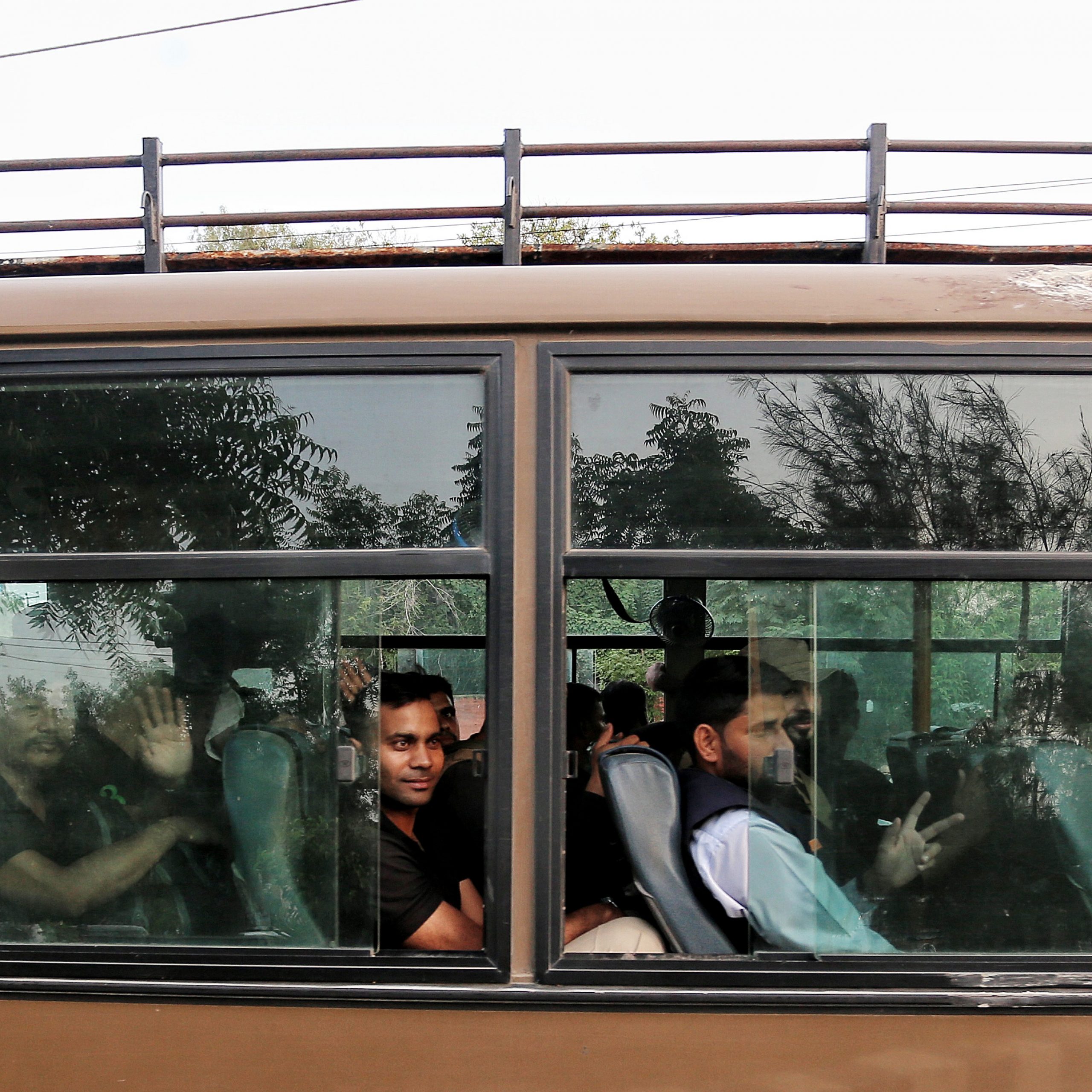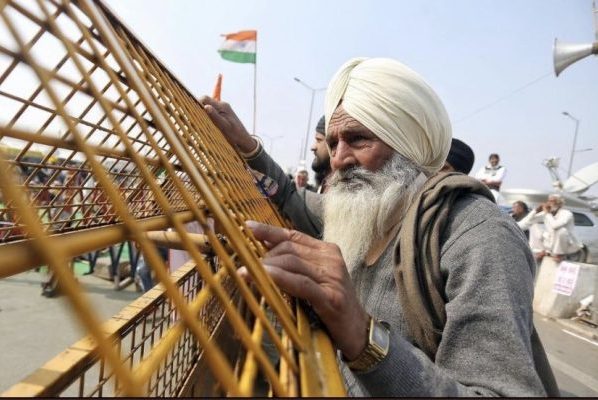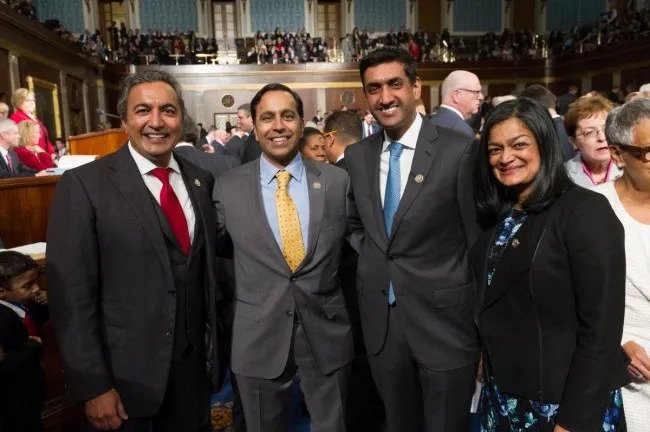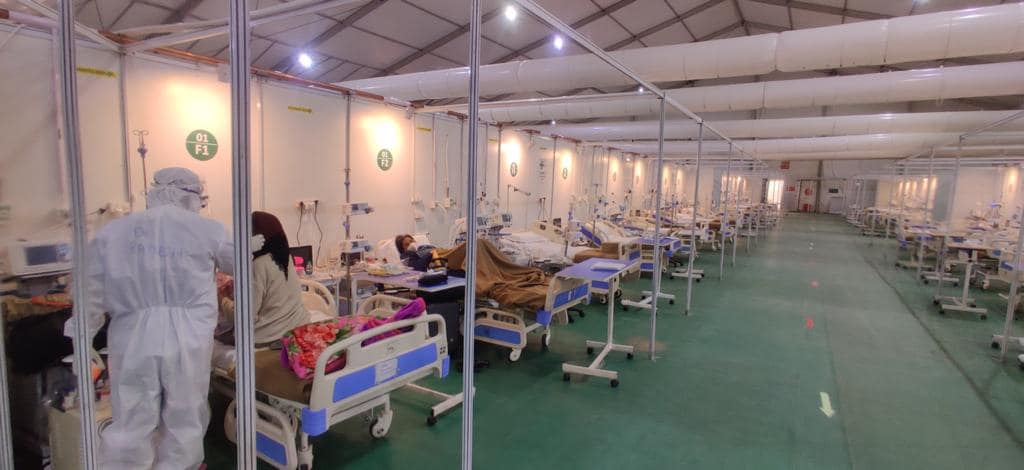As Kabul falls to the armed Afghan group, Pakistan stands to gain the most from the situation. China will increase its influence too. For India, it is a big setback. How will the great game be played in Afghanistan now?
Our Bureau
New Delhi
Afghanistan’s future is hanging in balance as the country’s government collapsed on Sunday soon after president Ashraf Ghani fled Kabul. The Taliban entered the presidential palace in the Afghan capital on Sunday and declared its victory over the government. Efforts are being made to maintain stability in Afghanistan. However, thousands of people are rushing to the airport to flee the nation as they are afraid of the terror group’s brutal atrocities in the nation.
Now, the question being asked is who gains from the situation in Afghanistan and who loses the most. India certainly is one of the most affected countries.
On Wednesday, after Indian Air Force (IAF) C-17 aircraft carrying 120 Indian officials from Afghanistan landed in Gujarat’s Jamnagar, the Indian Ambassador to Afghanistan, Rudrendra Tandon thanked IAF for flying them out of Afghanistan in such a crisis situation. “Thank you to the Indian Air Force who flew us out under conditions that are not normal,” said Tandon after landing at Jamnagar. He also appreciated the rescue efforts saying ‘how great it is to be tactful’.

“After 2 weeks of intense work, very complicated situation, the whole mission is very happy that its finally over. We are back home safely, without any accidents. We were a very large mission with 192 personnels that were evacuated from Afghanistan literally within a period of three days in a very orderly fashion in two phases,” added Tandon.
Amid the fast-unfolding situation in Afghanistan, External Affairs Minister S Jaishankar and US Secretary of state Antony Blinken discussed over the phone the crisis in the war-torn country. It was the second phone call between the two officials since the Taliban takeover early this week.
According to US State Department, the two agreed to continued coordination on Afghanistan. The call comes as several countries including the US and India are evacuating their citizens from the country. “Secretary of State Antony J. Blinken spoke today with Indian External Affairs Minister Dr. S. Jaishankar. Secretary Blinken and Minister Jaishankar discussed Afghanistan and agreed to continued coordination,” State Department Spokesperson Ned Price said in a short statement.
While India and US discuss the situation, the country that is playing an active role in the political process is Pakistan. Former CIA Clandestine Service member John Sipher blamed Pakistan for the swift collapse of Afghanistan by the Taliban.
Not only did the administration not have plans in place for every contingency, it did not have plans in place for what any casual observer of the withdrawal might consider all but certain to occur contingencies such as an emergency evacuation of our Afghan partners trapped in the country and under grave threat from the Taliban.

And then the president said this: “American troops cannot and should not be fighting in a war and dying in a war that Afghan forces are not willing to fight for themselves.”
Meanwhile, it has been revealed that China intends to increase its political influence in Afghanistan and it will gradually satisfy the Taliban wishes while ensuring that its own interests are guaranteed and its concerns addressed, said a Chinese dissident Jianli Yang.
In an opinion piece in The Diplomat, Jianli, founder and president of Citizen Power Initiatives for China, writes Beijing will approach Afghan affairs more cautiously than people think and it currently faces two major challenges in Afghanistan. First, the Chinese Communist Party desperately wants to prevent the resurgence of the East Turkestan Islamic Movement (ETIM) in Xinjiang, he mentions, adding that Beijing certainly hopes that dealing with the Afghan Taliban will not compromise the China-Pakistan Economic Corridor (CPEC).
“Although China intends to increase its political influence in Afghanistan, it has real interests to calculate and concerns to resolve. China will gradually satisfy the Taliban’s wishes while ensuring that its own interests are guaranteed and its concerns addressed. It will seek the greatest tangible benefits in return for political recognition of the Taliban regime,” he writes.
In July, Chinese Foreign Minister Wang Yi met with Taliban representatives in Tianjin.
“This was an important event following the direct talks between the US and the Taliban in 2018, as it greatly enhanced the Taliban’s international standing and signalled that the group is being recognized as a major political force on the global stage,” notes Jianli.
With the Taliban taking control of Afghanistan and US-back Afghan government collapsed, Jianli says that Beijing has a huge interest in achieving peace in Afghanistan following the withdrawal of US troops.
In a related development, the self-proclaimed ‘caretaker’ President of the Afghanistan Amrullah Saleh on Thursday said that the country is too big for Pakistan to swallow and too big for Taliban to govern. “Nations must respect the rule of law, not violence. Afghanistan is too big for Pakistan to swallow and too big for Talibs to govern. Don’t let your histories have a chapter on humiliation and bowing to terror groups,” Saleh said in a tweet.
Taliban have always been Pakistan’s first and only choice in Afghanistan, right from the emergence of the terrorist group the country has backed them with men, material, money, and military advice and assistance according to a foreign policy affairs expert.

Fabien Baussart, the President of Center of Political and Foreign Affairs wrote in Times of Israel that for Pakistan, the Taliban have always been their first and only choice in Afghanistan. Right from the time the Taliban erupted on the scene in Afghanistan, the Pakistanis have backed them with men, material, money, and military advice and assistance. Terming Pakistan, a “real enemy”, he said that the country is continuing to play its games of deception with the West by pretending to be behind a dialogue between Taliban and US in Afghanistan.
“After 20 years of being willfully misled by Pakistan, the Western world led by the US has still not come to terms with the fact that it has been taken for a ride Afghanistan. Even at this late stage when the Taliban is rapidly advancing towards Kabul and sweeping aside all resistance and nearly 14 provincial capitals have fallen to the Taliban and the Kunduz based Army Corps has surrendered, the US and its allies are still indulging in pointless ‘peace talks’, issuing unconvincing statements, and making utterly unrealistic threats to the Taliban who had many years ago been correctly labelled as the ‘wrong enemy’.
Now, the Taliban have been attempting hard to convince the world that they will sever ties with terror groups like al-Qaeda after they they are back in power in Afghanistan after 20 years and need the world’s recognition and approbation, a media report said.
Recently, the Taliban held their first press conference after capturing Kabul and answered a variety of questions, even they vowed to respect women and human rights but they were silent on their strong links with the regional terror groups and their future, the InsideOver media outlet reported. The Taliban have nearly more than two decades-old relations with Al-Qaeda and their proximity with the Pakistan-based terror groups like Lashkar-e-Taiba and Jamat-ud-Dawa have never been a secret. But now, when the terror group is set to get power, would the Taliban be still assisting these groups or leave them, it has not made it clear.
The Taliban have never confirmed its links with the terror groups operating in Afghanistan but all that changed after the Doha Agreement of 2019 when they signed on the dotted line to ensure that they will not allow any terrorist group to use Afghanistan as a base to plan attacks against the US, the InsideOver said.
In 2001, as the Taliban were thrown out of power, terrorists of both sides spent years hiding in valleys and mountains. As time passed, the group developed a strong bond among each other as they developed familiar relations and married into each other’s group. These relations are permanent and can’t be suspended, unlike a deal. Now, when the Taliban have gained control over Afghanistan, terrorists have got more security in the region, the InsideOver added.
In Afghanistan, there are many places hard to govern, due to geographical difficulties. Those places are safe havens for terrorists in the region. The Taliban’s long history of association with terror groups and its family-based relations with terrorists of other groups have raised severe questions about the Taliban’s commitment during the Doha agreement that it would not provide safe heavens to any terrorist in Afghanistan.
The whole world is watching Taliban to keep its promise.


























